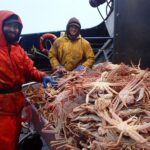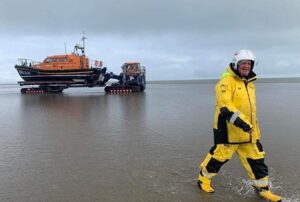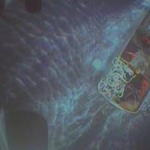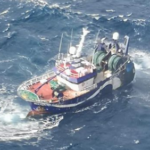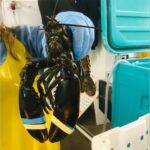Daily Archives: October 2, 2013
Tangle net experiment: Columbia River fishermen try out gillnet alternative
 Even with a chance at late returning coho salmon, few commercial gillnet fishermen will be out with tangle nets on the Columbia River in the next two weeks. more@dailyastorian 22:26
Even with a chance at late returning coho salmon, few commercial gillnet fishermen will be out with tangle nets on the Columbia River in the next two weeks. more@dailyastorian 22:26
Progress made in F/V Lone Star recovery near Dillingham, Alaska
 Salvage crews successfully moved the partially submerged fishing vessel Lone Star toward shallow water in the Igushik River near Dillingham, Monday. The Coast Guard has monitored the progress of the salvage effort since the vessel capsized in the river June 30. more@uscgnews21:27
Salvage crews successfully moved the partially submerged fishing vessel Lone Star toward shallow water in the Igushik River near Dillingham, Monday. The Coast Guard has monitored the progress of the salvage effort since the vessel capsized in the river June 30. more@uscgnews21:27
This is Fish Radio. I’m Laine Welch – Alaska shellfish growers talk acid oceans, blue mussels and more. That’s up next –
 Alaska shellfish growers will gather in Ketchikan later this month to update the state of that industry. There are 69 shellfish farm sites in Alaska; 28 are growing mostly oysters with sales topping a half million dollars last year. Dominating this year’s agenda is the seed crisis for future crops – more@fishradio 20:59
Alaska shellfish growers will gather in Ketchikan later this month to update the state of that industry. There are 69 shellfish farm sites in Alaska; 28 are growing mostly oysters with sales topping a half million dollars last year. Dominating this year’s agenda is the seed crisis for future crops – more@fishradio 20:59
Easy money in the lobster dealing biz

To the uninitiated, the lobster business looks deceptively simple. You buy lobsters for between $2.50 and $3 a pound and the next thing you know, someone has paid $30 for a lobster dinner at a white table cloth restaurant. It is tempting to think that there’s an easy way to make a fistful of money in this business. more@workingwaterfront 20:55
In the Cross Hairs – Court upholds killing sea lions to save salmon
 GRANTS PASS, Ore. (AP) – An appeals court has upheld killing sea lions that eat too many salmon at Bonneville Dam on the Columbia River. The Humane Society of the United States had challenged the killing, arguing that fishing and the dams kill far more salmon than sea lions. more@foxmontana 19:57
GRANTS PASS, Ore. (AP) – An appeals court has upheld killing sea lions that eat too many salmon at Bonneville Dam on the Columbia River. The Humane Society of the United States had challenged the killing, arguing that fishing and the dams kill far more salmon than sea lions. more@foxmontana 19:57
Big Blue Fisheries Salmon products recalled over botulism concern

Big Blue Fisheries is recalling ALL smoked products from all lots and codes, various sizes, in vacuum packages because the products may not have been properly cooked and have the potential to be contaminated with Clostridium botulinum, a bacterium which can cause life-threatening illness or death. more@wfmj 16:36
Commercial fishing in the Northeast: a decade of change – Nils Stolpe, FIshNet USA
 I had the honor of being asked to write an article to be included in the program for the 2013 New Bedford Working Waterfront Festival. While much of it has be covered in prior FishNets, I thought that some readers might be interested in it, so it is reproduced below. It is available as a pdf file from gardenstateseafood.org. Nils E. Stolpe – FishNet USA 14:44
I had the honor of being asked to write an article to be included in the program for the 2013 New Bedford Working Waterfront Festival. While much of it has be covered in prior FishNets, I thought that some readers might be interested in it, so it is reproduced below. It is available as a pdf file from gardenstateseafood.org. Nils E. Stolpe – FishNet USA 14:44
Hot Agendas Being Tackled by the North Pacific Council – This is Fish Radio. I’m Stephanie Mangini.
 Gulf of Alaska By-catch and the observer program are in the hot seat. Hear more after this . . .listen@fishradio 13:05
Gulf of Alaska By-catch and the observer program are in the hot seat. Hear more after this . . .listen@fishradio 13:05
Not good. Shell to start exploratory drilling in N.S. in 2 years
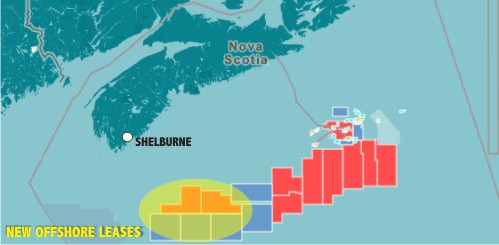
Shell Canada has completed 3D seismic imaging off Nova Scotia’s southwestern shore, but the energy giant says it will be at least two years before exploratory oil drilling begins as part of its $970 million deepwater venture. more@cbcnews 12:50
Are Humans behind the Massive Dolphin Die-Offs along the U.S. Mid-Atlantic Coast?
 Environmental degradation might be amplifying the effects of a measleslike virus, fueling infections that are propelling an alarming death count. more@scientificamerican 10:55
Environmental degradation might be amplifying the effects of a measleslike virus, fueling infections that are propelling an alarming death count. more@scientificamerican 10:55
Thanks for All the Fish: Pollock, salmon and global warming: The tricky questions of sustainability

Editor’s note: Seattle’s $5 billion commercial fishing industry has defined and sustained this city from its founding. Earlier this week, writer Daniel Jack Chasan looked at the local fleet’s key role in the world’s largest single fishery, the walleye pollock off Alaska’s coast and in the eastern Bering Sea. Today, he concludes the examination of the pollock’s sustainability and we wrap up our Thanks for All the Fish series. more@crosscut 09:57
Are you a big-picture person, or do you focus on the details? Two Takes on Climate Change in the Ocean
 A pair of recent studies show how marine ecosystems are changing as ocean temperatures rise, and that these changes are happening more quickly than expected. more@noaa.gov 09:42
A pair of recent studies show how marine ecosystems are changing as ocean temperatures rise, and that these changes are happening more quickly than expected. more@noaa.gov 09:42
Nanoose First Nation, as well a number of other First Nations along the Salish Sea, are hoping to expand their economic horizons through commercial fishing.
![]() The Nanoose band partnered with the Malahat, Tsawout, Beecher Bay and T’Sou-ke First Nations six years ago to form Salish Strait Seafoods to take advantage of local opportunities in the commercial fisheries. more@nanaimodailynews 09:15
The Nanoose band partnered with the Malahat, Tsawout, Beecher Bay and T’Sou-ke First Nations six years ago to form Salish Strait Seafoods to take advantage of local opportunities in the commercial fisheries. more@nanaimodailynews 09:15
William A. Karp, Ph.D. Northeast Fisheries Science Center: Scientists, fishermen must work together
![]() With the same respect that I feel for those in New Bedford and elsewhere in New England who are under difficult and constraining groundfish quotas, I call upon the fishing industry and the academic community to work with us to overcome the negative politics and work together to improve our science and mutual understanding. more@southcoasttoday 07:52
With the same respect that I feel for those in New Bedford and elsewhere in New England who are under difficult and constraining groundfish quotas, I call upon the fishing industry and the academic community to work with us to overcome the negative politics and work together to improve our science and mutual understanding. more@southcoasttoday 07:52
GDT Editorial: A deserving ‘fishermen’s friend’ – Angela Sanfilippo “a tireless crusader”
 Each year, the New Bedford-based Offshore Mariners’ Wives Association presents perhaps New England’s most prestigious award honoring those who have contributed to the fishing industry across the state and the region. And the list of past winners is exclusive, including the likes of the late Sen. Edward M. Kennedy, now-retired Congressman Barney Frank, and yes; our own late Richard Gaines. more@GDT 07:37
Each year, the New Bedford-based Offshore Mariners’ Wives Association presents perhaps New England’s most prestigious award honoring those who have contributed to the fishing industry across the state and the region. And the list of past winners is exclusive, including the likes of the late Sen. Edward M. Kennedy, now-retired Congressman Barney Frank, and yes; our own late Richard Gaines. more@GDT 07:37


































